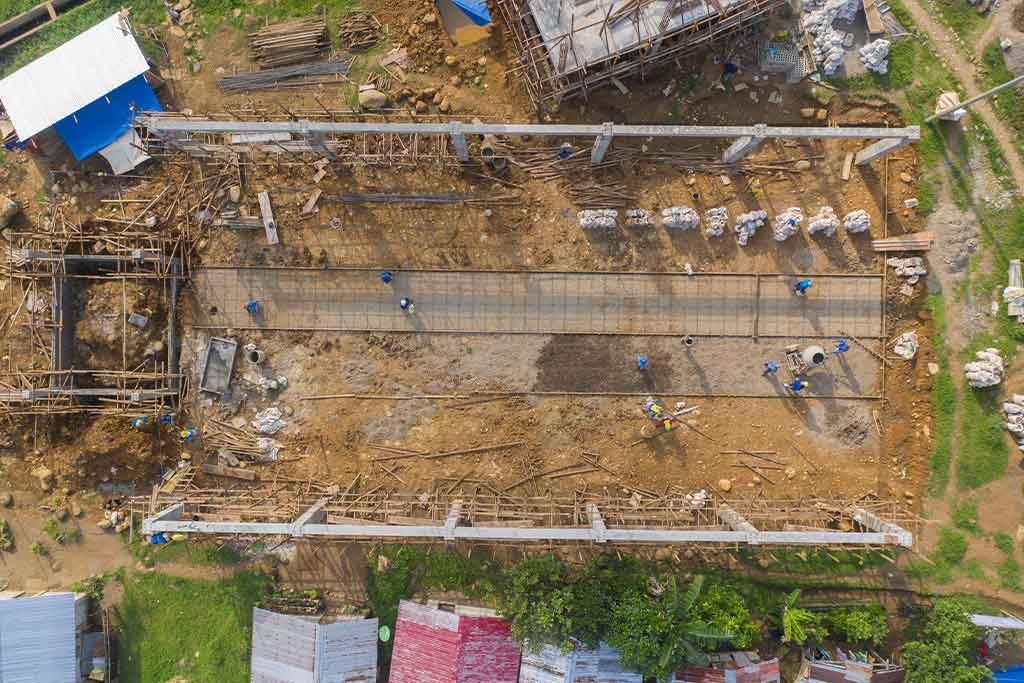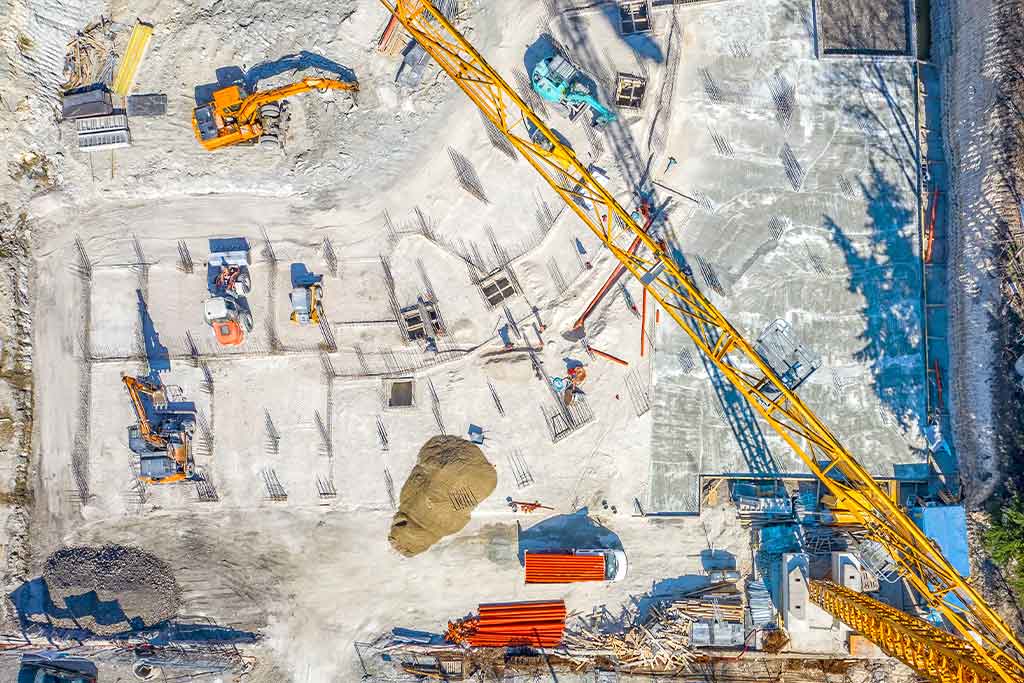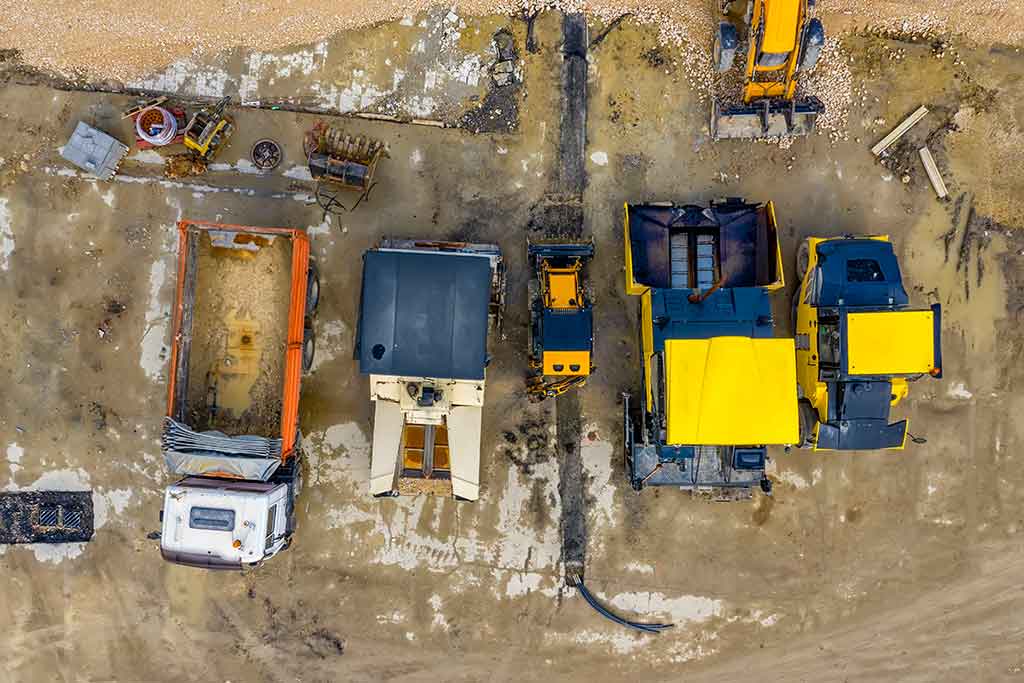In the fast-paced world of construction, time is money, and precision is paramount. And so enter drones, the game-changing technology that has revolutionized the construction industry! These aerial marvels have transformed the construction industry, offering unparalleled efficiency, accuracy, and safety. From planning and monitoring to execution, drones have reshaped the way we approach every aspect of construction. Let’s explore the seamless integration of cutting-edge technology and traditional craftsmanship, paving the way for a new era of construction excellence!
Aerial Surveying and Mapping

Drones equipped with high-resolution cameras and LiDAR (Light Detection and Ranging) sensors take surveying and mapping processes to a whole new level. Traditional land surveying methods can be time-consuming and labor-intensive, often requiring manual measurements and ground-level inspections. Drones, on the other hand, can quickly and accurately capture aerial images, creating detailed maps and 3D models of construction sites. The gathered data then assists architects, engineers, and project managers in visualizing the terrain, identifying potential challenges, and making informed decisions during the planning and design stages.
Quantity Estimation
By analyzing aerial images, drones can generate accurate measurements of stockpiles, excavation areas, and material quantities, aiding in cost estimation and resource management. Traditionally, these measurements involved manual surveys, which were time-consuming and prone to human error. However, drones have introduced a more efficient and precise method for obtaining these measurements. These measurements provided by drones not only improve cost estimation and resource management but also contribute to overall project efficiency. By having a clear understanding of material quantities, construction companies can avoid over or under-ordering materials, reducing waste and minimizing project delays.
Site Inspections and Safety
Safety is a top priority in the construction industry, and drones offer a safer alternative for site inspections. Instead of sending personnel to precarious heights or hazardous areas, drones equipped with cameras can capture real-time images and videos, allowing inspectors to assess structural integrity, identify potential risks, and monitor ongoing construction progress from a safe distance. This reduces the chances of accidents and injuries while improving overall safety protocols.
Progress Monitoring and Documentation

Tracking construction progress is essential to ensure projects stay on schedule and within budget. Drones equipped with high-resolution cameras enable regular aerial monitoring of construction sites. By capturing images and videos at different stages of the project, drones provide an accurate visual record of the work done, allowing project managers to compare actual progress with planned milestones. This data helps identify any deviations, facilitates effective communication between stakeholders, and supports timely decision-making to address potential issues promptly.
3D Mapping and Building Information Modeling
Drones play a significant role in the implementation of Building Information Modeling (BIM), a digital representation of a construction project. By using drones to capture aerial images and LiDAR data, precise 3D models of the existing site and surrounding areas can be generated. These models integrate seamlessly into the BIM workflow, enabling architects, engineers, and contractors to collaborate efficiently and make informed decisions regarding design, clash detection, material quantities, and spatial coordination. This reduces costly rework, enhances communication, and improves overall project efficiency.
Construction Site Security

Construction sites are often targets for theft and vandalism. Drones with high-resolution cameras and thermal sensors can act as security systems, monitoring construction sites during non-working hours. With their ability to cover large areas quickly, drones can detect unauthorized access, provide real-time alerts, and record evidence for investigation purposes. This enhances site security, protects valuable equipment and materials, and provides peace of mind for construction site owners.
Drones have become indispensable tools in the construction industry, offering improved efficiency, accuracy, and safety. From aerial surveying and mapping to site inspections, progress monitoring, and security, drones are transforming the way construction projects are planned, executed, and documented. As drones continue to evolve, their potential for even greater advancements and applications in construction is limitless, driving the industry toward a more efficient, streamlined, and safer future.



